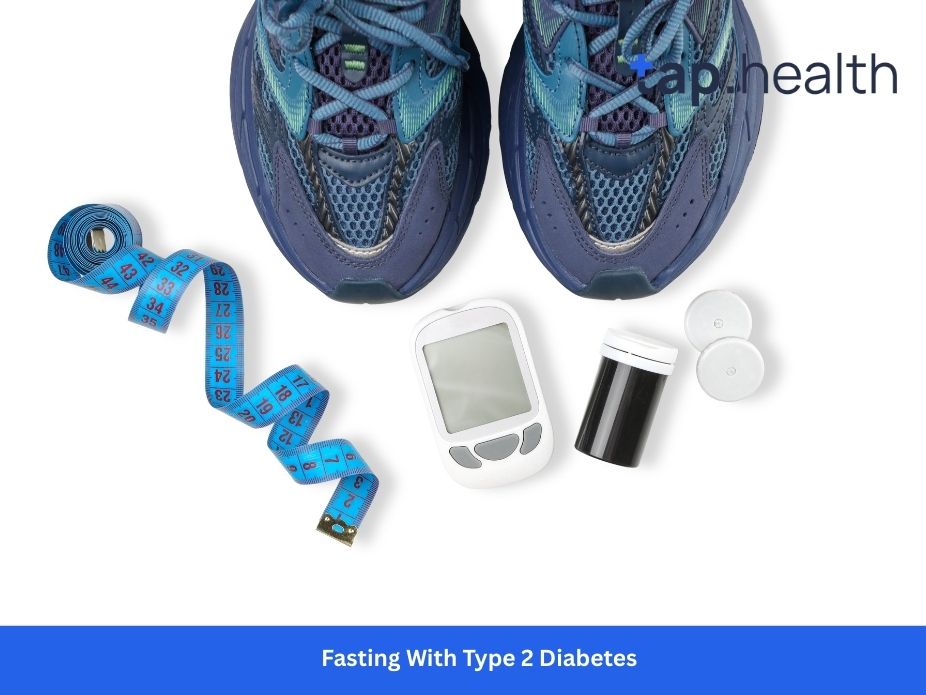Noodles are a staple in many cuisines, from the comforting bowls of pasta in Italy to the flavorful stir-fries of Asian cuisine. But for those living with diabetes, the question arises: Can a diabetic eat noodles without spiking their blood sugar?
The short answer is yes—you can eat noodles, but you need to choose your noodles wisely and practice portion control. Understanding how different types of noodles affect your blood sugar levels can help you make better choices.
In this blog post, we’ll explore the relationship between noodles and blood sugar, provide tips on how diabetics can enjoy noodles safely, and offer some healthier alternatives.
How Do Noodles Affect Blood Sugar?
When you eat noodles, your body breaks them down into carbohydrates, which are then converted into glucose (sugar) in your bloodstream. The more refined the noodles, the faster they get digested, and the quicker your blood sugar will rise. For people with diabetes, this can be problematic because it can lead to spikes in blood sugar, which can be difficult to manage.
However, not all noodles are created equal. The type of noodles you choose and how much you consume plays a significant role in how they affect your blood sugar levels.
Refined Carbs vs. Whole Grains
Traditional noodles, such as those made from white flour (think regular pasta), are considered refined carbohydrates. These noodles have a high glycemic index (GI), meaning they cause a sharp rise in blood sugar after eating. Consuming too many refined carbs can contribute to insulin resistance, which is a major concern for people with diabetes.
On the other hand, whole grain noodles made from whole wheat or other whole grains tend to have a lower glycemic index. This means they are digested more slowly, leading to a gradual rise in blood sugar rather than a sharp spike. Whole grain noodles also contain more fiber, which helps regulate blood sugar and provides additional health benefits.
Instant Noodles and Processed Noodles
While convenient, instant noodles are often highly processed and packed with unhealthy fats, sodium, and preservatives. They typically have a high glycemic index and very little nutritional value. Eating instant noodles regularly can be harmful, especially for diabetics, as they can lead to a quick increase in blood sugar levels.
If you’re craving noodles, it’s best to avoid highly processed options like instant noodles and instead choose more whole food-based options.
Can a Diabetic Eat Noodles? Practical Tips for Healthier Choices
If you’re a diabetic and love noodles, you don’t have to give them up entirely. By making smarter choices and controlling portions, you can still enjoy your noodles without negatively impacting your blood sugar levels. Here are some tips to help you make healthier choices:
1. Choose Whole Grain or Low-Carb Noodles
One of the easiest ways to make noodles safer for diabetics is to opt for whole grain noodles instead of those made from refined flour. Whole wheat pasta, spelt noodles, or brown rice noodles contain more fiber and nutrients, which helps slow down the absorption of sugar into your bloodstream.
If you’re looking for even lower-carb alternatives, consider zucchini noodles (zoodles) or shirataki noodles. Shirataki noodles are made from konjac root and are incredibly low in carbs, making them an excellent choice for diabetics who are watching their blood sugar levels.
2. Watch Your Portion Sizes
Portion control is crucial for managing blood sugar levels. Even if you choose whole grain or low-carb noodles, eating large portions can still lead to elevated blood sugar. A typical serving of pasta is about one cup cooked. If you’re adding a sauce or other ingredients, make sure you’re not overwhelming your plate with too many carbs.
To balance your meal, consider pairing your noodles with non-starchy vegetables like spinach, bell peppers, and zucchini. These vegetables are low in carbs and provide plenty of fiber and nutrients.
3. Choose a Healthy Sauce
Many pasta sauces are loaded with sugar, especially tomato sauces and pre-packaged sauces. To keep your blood sugar levels stable, make your own sauce at home with fresh tomatoes, olive oil, garlic, and herbs. Avoid creamy sauces or those made with heavy cream, as they can add unhealthy fats and calories.
If you’re ordering noodles from a restaurant, ask for sauce on the side or opt for olive oil-based sauces instead of those with cream or sugar.
4. Limit High-Glycemic Sauces and Additions
Some traditional noodle dishes, especially in Asian cuisines, come with high-sugar sauces or fried toppings. For instance, soy sauce is often used in stir-fries, but it contains high levels of sodium and can contribute to high blood pressure. Opt for reduced-sodium soy sauce or other healthier condiments, like miso or low-sodium tamari, when preparing your noodles.
10 Diabetes-Friendly Pasta Recipes
Pasta can be part of a diabetic-friendly diet when you choose the right ingredients and portion sizes. By using whole-grain, lentil, or vegetable-based pasta and combining it with lean proteins, healthy fats, and plenty of vegetables, you can enjoy delicious meals without blood sugar spikes.
Whole Wheat Vegetable Pasta
This colorful pasta is made with whole wheat spaghetti, sautéed bell peppers, spinach, zucchini, and a drizzle of olive oil.
Benefits:
- Whole wheat pasta is high in fiber and digests slowly.
- Vegetables add vitamins, minerals, and antioxidants.
- Olive oil provides healthy fats that help stabilize blood sugar.
Nutrition (Approx.):
190 calories | 8g protein | 5g fat | 30g carbs
Zucchini Noodle Pasta with Grilled Chicken
A low-carb meal using spiralized zucchini (zoodles) topped with grilled chicken and light tomato sauce.
Benefits:
- Zucchini noodles are extremely low in carbs and calories.
- Chicken adds lean protein for better satiety.
- Ideal for weight management and blood sugar balance.
Nutrition (Approx.):
180 calories | 22g protein | 4g fat | 8g carbs
Lentil Pasta with Pesto Sauce
Made with lentil pasta and a homemade pesto of basil, garlic, olive oil, and pine nuts.
Benefits:
- Lentil pasta is rich in protein and fiber.
- Pesto provides heart-healthy fats.
- Keeps you full longer while supporting stable glucose levels.
Nutrition (Approx.):
200 calories | 15g protein | 7g fat | 22g carbs
Chickpea Pasta with Roasted Vegetables
High-protein chickpea pasta tossed with roasted cherry tomatoes, eggplant, and bell peppers.
Benefits:
- Chickpea pasta has a low glycemic index.
- Roasted vegetables add fiber and antioxidants.
- Perfect for a balanced diabetic meal.
Nutrition (Approx.):
195 calories | 14g protein | 5g fat | 25g carbs
Spinach and Ricotta Whole Grain Pasta
Whole grain pasta mixed with sautéed spinach, ricotta cheese, and garlic for a creamy yet healthy flavor.
Benefits:
- High in calcium and iron.
- Whole grains prevent sugar spikes.
- Creamy texture without excess calories or fat.
Nutrition (Approx.):
190 calories | 12g protein | 6g fat | 24g carbs
Penne Pasta with Tomato and Tuna
A Mediterranean-inspired dish using whole wheat penne, tuna, tomatoes, and herbs.
Benefits:
- Tuna provides omega-3 fats and protein.
- Tomatoes add antioxidants like lycopene.
- Low in saturated fat and balanced for diabetics.
Nutrition (Approx.):
185 calories | 18g protein | 4g fat | 22g carbs
Quinoa Pasta with Broccoli and Garlic
Quinoa-based pasta paired with steamed broccoli and sautéed garlic in olive oil.
Benefits:
- Gluten-free and rich in plant protein.
- Broccoli adds fiber, vitamins, and minerals.
- Helps regulate cholesterol and blood sugar levels.
Nutrition (Approx.):
190 calories | 10g protein | 6g fat | 25g carbs
Shrimp and Spinach Zoodle Pasta
A light, low-carb pasta made with zucchini noodles, shrimp, and lemon-garlic sauce.
Benefits:
- Very low in carbs and calories.
- Shrimp offers lean protein and minerals.
- Refreshing, quick-to-digest meal option.
Nutrition (Approx.):
175 calories | 20g protein | 4g fat | 6g carbs
Vegetable Lasagna with Whole Wheat Sheets
A layered dish using whole wheat lasagna sheets, ricotta, zucchini, mushrooms, and tomato sauce.Benefits:
- High in fiber and protein.
- Packed with nutrients from vegetables.
- Satisfying while keeping portions in control.
Nutrition (Approx.):
200 calories | 13g protein | 7g fat | 26g carbs
Tofu Pasta Stir-Fry
Brown rice or soba noodles stir-fried with tofu, broccoli, carrots, and soy sauce.
Benefits:
- Balanced with protein, fiber, and healthy carbs.
- Low glycemic and rich in plant nutrients.
- Great for lunch or dinner without sugar spikes.
Nutrition (Approx.):
190 calories | 15g protein | 5g fat | 23g carbs
Real-Life Scenario: Rina’s Noodle Journey
Rina, a 45-year-old woman from Mumbai, was diagnosed with type 2 diabetes a few years ago. She loves noodles but had to be careful because her blood sugar would spike whenever she ate her favorite noodles with spicy soy sauce. After consulting with her nutritionist, Rina made some changes to her noodle dishes.
She swapped her regular instant noodles for whole grain noodles and started using homemade tomato sauce with fresh herbs. She also cut down her portion sizes and made sure to add plenty of veggies like broccoli, carrots, and bell peppers. By making these simple changes, Rina found that she could enjoy her noodle dishes without causing any major blood sugar spikes.
Expert Contributions: Dr. Sandeep Patil’s Tips on Noodles for Diabetics
Dr. Sandeep Patil, an endocrinologist based in Bangalore, shares that for diabetics, eating noodles is okay as long as it’s part of a balanced meal. According to Dr. Patil, “Diabetics can still enjoy noodles, but they should choose whole-grain or low-carb alternatives and control their portion sizes. The key is to balance the meal with protein, healthy fats, and fiber-rich vegetables to slow the absorption of carbs.”
Dr. Patil also advises diabetics to avoid instant noodles due to their high glycemic index and unhealthy additives.
Can I Eat Noodles Regularly as a Diabetic?
The short answer is yes, but in moderation. Regular consumption of noodles, especially those made from refined flour, can cause blood sugar spikes. However, if you stick to healthier noodle options and practice portion control, you can enjoy noodles as part of a balanced diet.
It’s also important to combine noodles with other nutrient-dense foods like vegetables, lean proteins, and healthy fats to help maintain stable blood sugar levels. The more balanced your meal, the less impact it will have on your blood sugar.
FAQs: Can a Diabetic Eat Noodles?
Do noodles increase blood sugar?
Yes, most regular noodles made from refined wheat flour can increase blood sugar because they are high in carbohydrates and low in fiber. This causes a quick spike in glucose levels after eating. However, choosing whole-grain, buckwheat, or vegetable-based noodles can help slow digestion and reduce blood sugar impact. Portion control and pairing noodles with protein or vegetables can further help manage blood glucose levels.
What kind of noodles are best for diabetics?
The best noodles for diabetics are those that are low in carbohydrates, high in fiber, and made from whole or alternative grains. Some healthy options include:
- Whole wheat noodles – contain more fiber than refined noodles.
- Buckwheat (soba) noodles – moderate carbs and rich in antioxidants.
- Shirataki noodles – extremely low in carbs and calories.
- Brown rice or lentil noodles – gluten-free and fiber-rich options.
These noodles have a lower glycemic index and help maintain steady blood sugar levels.
Which is better for diabetics, noodles or rice?
Both noodles and rice can affect blood sugar, but whole-grain noodles are often slightly better than white rice, depending on the preparation. Whole-grain noodles typically have more fiber, which helps slow carbohydrate absorption. On the other hand, white rice is quickly digested and can cause faster glucose spikes. For best results, diabetics should choose brown rice or whole-grain noodles, and always control portion size.
Is Maggi noodles good for diabetic patients?
No, Maggi noodles are not suitable for diabetics. They are made from refined flour (maida) and contain high sodium, artificial flavorings, and low fiber, all of which can negatively impact blood sugar and heart health. Eating Maggi occasionally won’t cause harm for most people, but it should not be a regular meal choice for diabetic patients. Instead, diabetics can make homemade noodles using whole wheat or millet flour and add vegetables and lean protein for a healthier version.
Conclusion: Can a Diabetic Eat Noodles?
Yes, diabetics can eat noodles, but it’s important to choose healthier alternatives and manage portions. By opting for whole grain or low-carb noodles, using homemade sauces, and balancing your meal with vegetables and lean proteins, you can enjoy your favorite noodle dishes while keeping your blood sugar levels in check.
For more tips on managing diabetes with diet, check out this article: Is Juicing Good for Diabetes?.
References:
- American Diabetes Association (ADA). (2023). Healthy Eating for Diabetes. https://www.diabetes.org/



